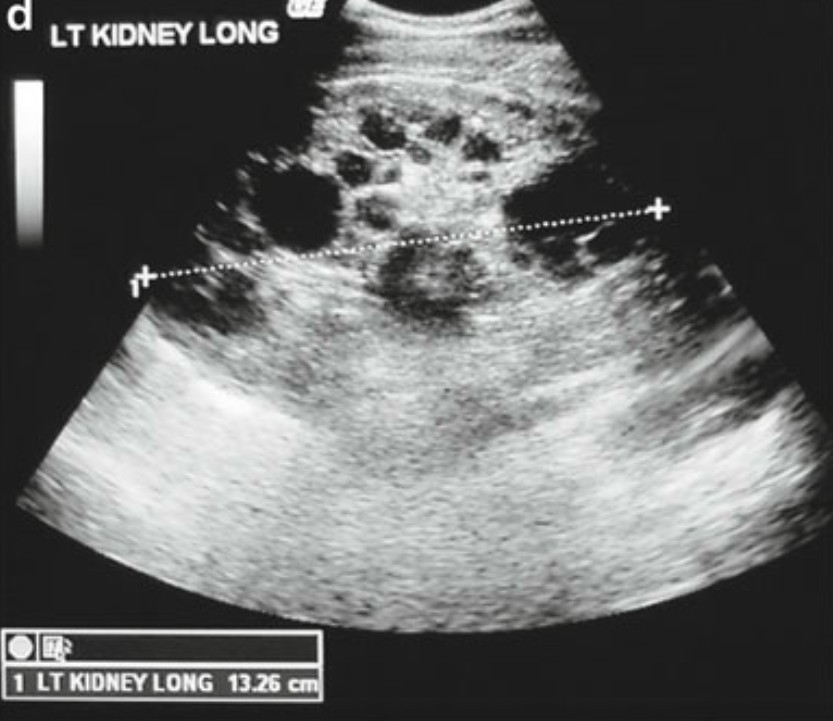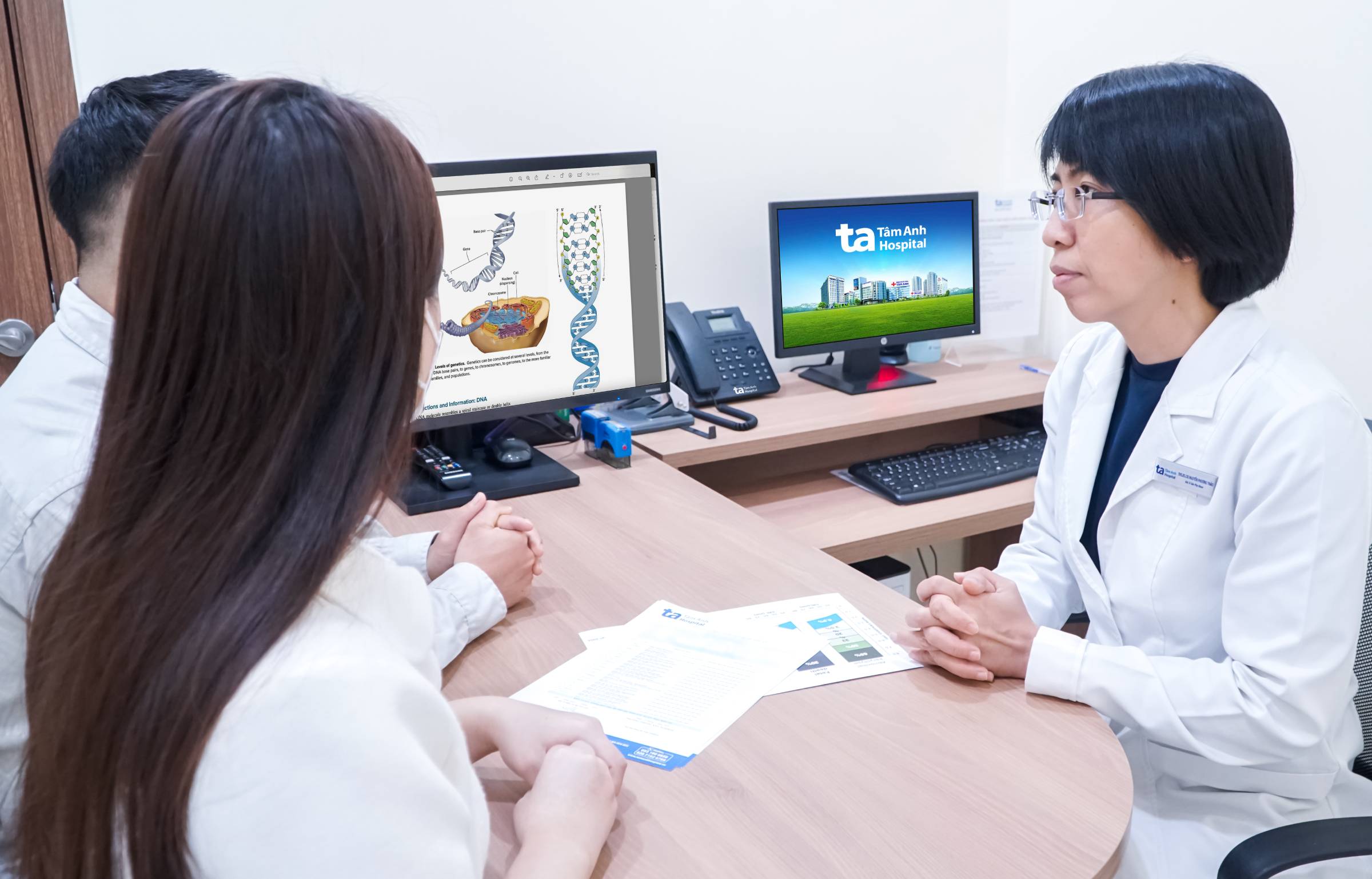A 35-year-old woman, pregnant with her second child, had an uneventful first-trimester ultrasound. However, at 20 weeks, Dr. Nguyen Phuong Thao of the Fetal Medicine Unit at Tam Anh General Clinic, District 7, detected kidney abnormalities in the fetus. Amniocentesis confirmed a dominant PKD1 gene mutation on chromosome 16, causing polycystic kidney disease.
Polycystic kidney disease is a genetic disorder characterized by the growth of cysts (fluid-filled sacs) within the kidneys. Over time, these cysts enlarge, compressing and damaging healthy kidney tissue. This can lead to reduced kidney function, kidney stones, high blood pressure, urinary tract infections, and even affect nearby organs like the liver and pancreas.
Dominant inheritance means that if either parent carries the mutated gene, each child has a 50% chance of inheriting the disease. "Carriers may be unaware of their condition until symptoms appear in middle age," Dr. Thao explained.
In this case, the gene mutation was inherited from the 38-year-old father. He had a large kidney cyst and had been treated for hypertension for two years, unaware it stemmed from polycystic kidney disease. Following the fetal diagnosis, he underwent genetic testing, confirming he carried the same mutated gene.
Dr. Thao assessed that the condition wouldn't severely impact the fetus but recommended close monitoring of fetal development, particularly kidney function and amniotic fluid levels, to prevent oligohydramnios (low amniotic fluid).
 |
Ultrasound image showing cysts (black circles) scattered throughout the father's kidney. Photo: Tam Anh General Hospital |
Ultrasound image showing cysts (black circles) scattered throughout the father's kidney. Photo: Tam Anh General Hospital
Currently, there's no cure for polycystic kidney disease. Early prenatal diagnosis allows doctors and families to plan disease management from infancy. After birth, the baby will undergo kidney ultrasounds to assess cyst quantity, size, and location, along with blood and urine tests to evaluate kidney function. Regular monitoring, symptom management, and a tailored diet will help slow disease progression and limit complications.
Dr. Thao advised the father to continue his hypertension treatment, attend regular check-ups, maintain a low-sodium diet rich in fruits and vegetables, manage his weight, exercise for 30 minutes daily, and limit alcohol consumption. She also recommended genetic testing for their first child to determine if they also inherited the condition.
 |
Dr. Thao provides genetic counseling to a couple. Photo illustration: Tam Anh General Clinic, District 7 |
Dr. Thao provides genetic counseling to a couple. Photo illustration: Tam Anh General Clinic, District 7
Studies show dominant polycystic kidney disease affects 1/400-1,000 people, making it the most common inherited cause of kidney failure. About 50-75% of patients progress to end-stage renal disease by age 70, requiring dialysis or a kidney transplant.
Symptoms typically emerge in adulthood between the ages of 30 and 40 and may include high blood pressure, flank pain, anemia, and blood in the urine. Complications can include kidney failure, kidney stones, urinary tract infections, and liver or pancreatic cysts. Children with the disease have a higher incidence of hypertension and proteinuria (protein in the urine), requiring lifelong monitoring and treatment. Early diagnosis, risk assessment, appropriate medication, and managing risk factors like high blood pressure, urinary citrate levels, and proteinuria can slow disease progression and enable timely intervention for complications.
Dr. Thao recommends pre-conception or prenatal screening for polycystic kidney disease, especially for couples with a family history of kidney disease or unexplained hypertension. Early detection of gene carriers allows for detailed counseling about the disease and inheritance risks. For high-risk pregnancies, prenatal diagnosis through chorionic villus sampling or amniocentesis is available. This facilitates appropriate pregnancy management, ensuring the safety of both mother and child.
Ngoc Chau
| Readers can submit questions about obstetrics and gynecology here for doctors to answer. |












